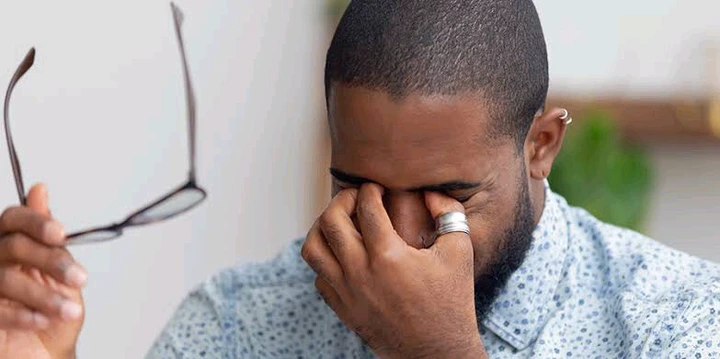Blind: Disease-induced blindness is often overlooked, leading to a common misconception.
Many individuals gradually lose their vision without realizing it, as they dismiss mild discomfort and mistakenly believe there is nothing seriously wrong with their eyes.
The aim of this essay is to educate readers about the warning signs of impending blindness and the preventive measures that can be taken.
Take a moment to relax and learn where you stand and what steps to take by familiarizing yourself with these signs.
What Are the Warning Signs of Impending Blindness?
1. Haloes or rainbow-colored rings around lights:
If you notice a dazzling rainbow-colored circle around light sources or experience this phenomenon whenever you encounter light, it may indicate a potential vision loss.
Haloes around lights are often associated with conditions like glaucoma or cataracts.
It is crucial to promptly investigate this issue to prevent permanent vision impairment.
2. Sudden onset of blurred vision:
If your vision suddenly becomes blurry to the point where you require prescription glasses but are still experiencing difficulties, it’s essential to seek a medical checkup.
According to healthline Blurry vision that cannot be attributed to nearsightedness could be a warning sign of an underlyinlong-termg problem that needs attention to prevent vision loss.
3. Persistent eye pain:
Do not ignore persistent eye pain as it could be an indication of potential blindness.
If you experience ongoing discomfort in one or both eyes, particularly if the cause is unclear, it is advisable to consult a doctor.
Excruciating eye pain is often the initial symptom of various eye conditions that can impair vision. Do not attempt to conceal or disregard the issue.
4. Unexplained redness in the eyes:
Redness in the eyes can occur for various reasons, some more significant than others.
If your eyes become red without any apparent cause, especially if you also experience pain or blurred vision, it is advisable to seek medical attention. These warning signs should not be disregarded.
When Should You See a Doctor?
If you notice any changes in your eyesight, particularly if they affect your ability to perform daily tasks, it is important to schedule an appointment with your doctor.
The eyes are incredibly delicate, and any unusual symptoms warrant investigation.
Remember, being proactive about your eye health and seeking timely medical care can help prevent or minimize the risk of vision loss.


